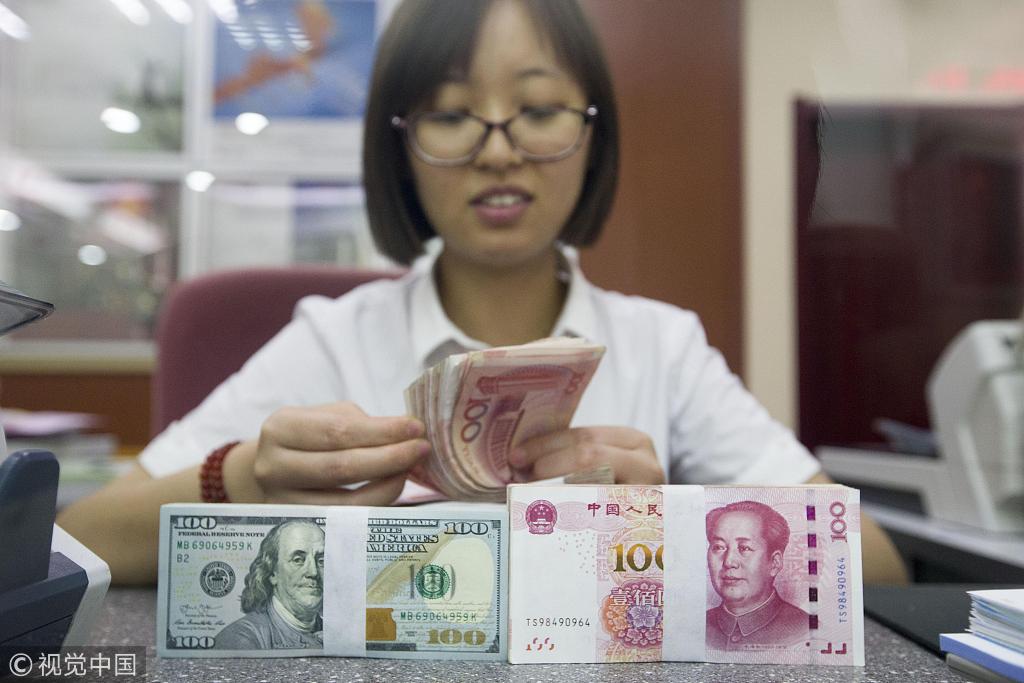Trade frictions muddy forex waters


US central bank keeps interest rates unchanged, in line with market expectations
Uncertainties brought by global trade frictions, compounded with the US Federal Reserve's continual rate hikes, are expected to further complicate the market expectations on the renminbi exchange rate, according to analysts.
The US dollar continually strengthened against a basket of major currencies on Wednesday although the US central bank decided to keep interest rates unchanged after a two-day meeting, a move which was consistent with market expectations.
The Fed's latest assessment, saying that "economic activity has been rising at a strong rate", has increased the possibility of a rate hike in September, and it squeezed the interest rate differential between Chinese and US treasury bonds to the lowest level since 2010.
The yield on the benchmark 10-year US Treasury bonds was up 4.05 basis points to 3.005 percent on Wednesday, narrowing the rate gap with Chinese 10-year treasury bonds to 0.48 percent, amid market pressure that could further push down the renminbi exchange rate against a stronger dollar.
The renminbi now has a relatively weaker status since it was included in the basket of the International Monetary Fund's special drawing rights, said Ding Zhijie, vice-president of University of International Business and Economics.
Different from the renminbi's earlier depreciation in April and May, the main driving force has shifted to the rising risks of Sino-US trade friction, from the influence of a stronger US dollar, he said.
"It means the worldwide trade tension, worsened by the US tariff policy, could surpass the potential influence of the Fed's rate hikes, to dominate future exchange rates," said Ding.
A top-level meeting of Chinese policymakers this week pledged to stabilize financial policy and market expectation, without softening the commitment to "deleveraging".
Experts suggested that avoiding the further accumulation of depreciation pressure and guiding market sentiment will be challenges for China's foreign exchange managers in the coming months.
"Potential policy considerations to avoid additional complications by Sino-US trade friction and to mitigate domestic residents' currency worries may limit the scope for much further depreciation (of the renminbi)," said MK Tang, an economist at Goldman Sachs (Asia).
There are still a few factors that could rein in the weakening of the renminbi, Tang said, including a potential rise of foreign inflows to the domestic bond and equity markets.
As analysts said, renminbi depreciation on the other hand could mitigate some of the disruption to Chinese exporters caused by the trade friction, although the monetary authority is unlikely to proactively weaken the currency.
An estimate from Goldman Sachs indicated that renminbi depreciation since mid-June could boost China's GDP growth by 40 to 50 basis points, which would offset the estimated direct growth drag from the first two rounds of US tariff measures, "although the boost would probably be realized in full a few months later".



































